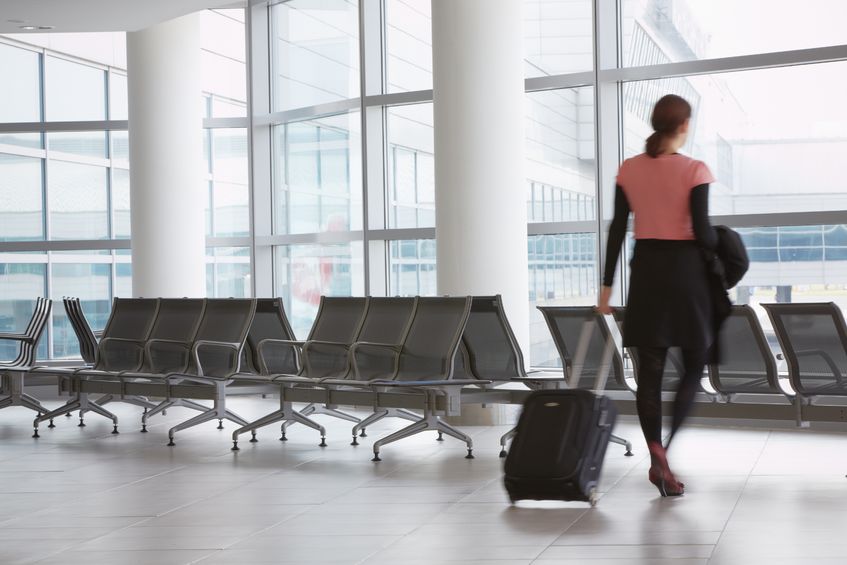Tips to Reduce Travel Expenses and Avoid Costly Mistakes
The quality and sophistication of web-based video chat and conferencing services such as Skype, Google Hangouts, AnyMeeting, FaceTime, and even Facebook have improved to the point that flying cross-country to meet face-to-face with clients or partners is no longer a necessity. Weekly team meetings can be conducted simultaneously across multiple time zones, trainings can be conducted via webinars instead of in crowded conference rooms, and new partnerships can be built, all via the wonders of the now-familiar world wide web.
Unfortunately, the rise in new digital solutions doesn’t completely eliminate the need for business travel. In fact, industry forecasts predict that business travel will increase in 2015 at a higher rate than the predicted world economic GDP growth rate of 3.1%. This is likely due to the same digital solutions that span across continents and time zones, making conducting business from anywhere around the globe, at any time, even easier.
Therefore, business travel is still a vital and an extremely costly part of building, growing and maintaining a business. If you are an entrepreneur or small business owner, seeking cost-effective ways to travel is imperative.
So consider these smart tips for reducing travel expenses:
Book in Advance
-
-
- Make travel reservations as early as possible. It’s the law of supply and demand: flights, hotels, and car rentals all go up in price as availability decreases.
- To secure the best rate, you should book all of your accommodations as early as possible. Two weeks should be the general rule for the minimum lead-time between booking and taking a trip, but four weeks or more will likely result in the best rates. (See this recent, helpful article in the Wall Street Journal for even more specifics on the subject.)
- If you must book late reservations, look for special discounts and sign up for online fare-watching services to learn when a price falls, or to be alerted about last minute sales.
-
Maximize Discounts
-
-
- If your travel dates are flexible, book travel when demand is low: check for off-peak times for your destination city. (Tuesday, Wednesday and Saturday are typically the slowest days for airlines.)
- Call hotels, airlines and rental car services to ask for corporate discount programs, and sign up for online notifications for special discounts. You can also qualify for discounts thru your affiliations with companies or organizations.
-
Consider a Travel Agency. With access to so many travel booking sites online, travel agencies seem to be a thing of the past, but as competition rises, so do alternative solutions and the need to stay competitive. Therefore, most travel agencies have pre-negotiated rates with airlines, hotels, and rental car services. So, instead of doing the legwork yourself, travel agencies can offer a quick money-saving package and also consolidate your travel thru one easy venue.
Leverage Your Resources. Although travel agencies can be extremely helpful for volume discounts and consolidation of travel services, the most important course of action as a savvy business traveler is not to limit yourself.
-
-
- So check pricing on discount sites such as Expedia, Priceline, Orbitz, Hotwire, Travelocity, and Kayak, and also directly with the airlines and hotels.
- Also try a web search for the mode of transportation (train, plane) you want and your destination — you might be surprised to find a special one-time rate on a new travel booking site.
-
Use Free & Public Transportation. Most hotels and large events offer free shuttles to and from the airport and to and from popular destinations in the area. Also, large cities such and New York and Chicago offer train services from the airport to downtown, which many times are faster than taxis, especially during rush hour or bad weather. The same can be said for commuting in the city. Trains and sub ways are sometimes the fastest and most cost-effective travel options.
Optimize Your Time. Make sure you take full advantage of your business trip and fill your schedule with as many partner/client meetings as possible. And when you’re not on the clock, see the city and enjoy the restaurants and local treasures it has to offer.
Develop a Travel Policy. If you are a business owner, implement a documented company travel policy that provides specific details on travel expenses, spending limits, booking options, preferred brands, reimbursement for expenses, and limits that require a signature if exceeded. Stay firm on travel policy requirements, and do not reimburse expenses that were not allowed by policy.
Take Advantage of Reward Programs. Reward program status is a badge of honor for frequent business travelers. It takes a significant amount of time and travel to reach elite status for most programs, but the perks are worth it. Sign up for as many programs as possible and take advantage of the free upgrades.
Avoid these common travel mistakes and policy tactics:
-
-
- DON’T Order Room Service. Not only is the price of the food higher than any restaurant in town, when you add in the required 15% service fee and in-room dining fee of $5-12, you’ll likely be blowing your entire food budget on a chicken sandwich. If you don’t want to go out to eat, order to-go from a local restaurant. The concierge will have a list of great restaurants that are close by, and many will even deliver.
- DON’T Eat at the Breakfast Buffet (unless it’s free). The breakfast buffet is just as bad as the room service fees. Ask the concierge or front desk clerk for a local café to grab a coffee and light breakfast before you start your day — which will also allow you to see a bit of what the local establishments have to offer.
- DON’T Get Lazy with Your Travel Policy. Travel policies should be evaluated at a minimum every year. Renegotiate corporate rates, ask your employees for feedback, conduct audits, and look for new ways to innovate your travel policies.
- DON’T Require Your Employees to Share Rooms. This is occasionally added to travel policies as a means of reducing costs. Most travelers spend the bulk of their time meeting and entertaining with clients and partners. The hotel room is their only oasis and alone time. Value their personal time while traveling and don’t ask them to share a room with another employee.
- DON’T Take Ownership of Frequent Flyer Miles and Hotel Points. Travel miles and points are not only a badge of honor, but a huge bonus for business travelers, typically resulting in a well-deserved “free” personal or family vacation. Don’t kill employee morale by taking ownership of miles and points for corporate use.
-
Take advantage of the rise in new sophisticated online solutions when possible, but when travel is required, make timely reservations, budget expenses, and explore cost-effective options. Above all, be a savvy business traveler!
TAGS: business travel travel
 Interviewer Interview Prep
Interviewer Interview Prep Impactful Mentees
Impactful Mentees Benefits of a Mentor
Benefits of a Mentor Advice for First-Time Managers
Advice for First-Time Managers Overcoming the 18-month Itch
Overcoming the 18-month Itch Dressing for Your Style
Dressing for Your Style Interview Style Tips
Interview Style Tips Women's Stocking Stuffers
Women's Stocking Stuffers Gift the Busy Traveler
Gift the Busy Traveler Father’s Day Gift Guide
Father’s Day Gift Guide Airport Layover Activities
Airport Layover Activities Traveling & Eating Healthy
Traveling & Eating Healthy Travel Like a Boss Lady
Travel Like a Boss Lady The Dual California Life
The Dual California Life Gifts for Thanksgiving
Gifts for Thanksgiving Summer Reading List
Summer Reading List Top Leisurely Reads
Top Leisurely Reads New Year, New Books
New Year, New Books Life Lessons from a Sitcom
Life Lessons from a Sitcom Oprah, Amy or Amal?
Oprah, Amy or Amal?













